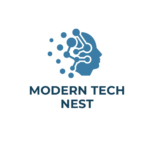Key Takeaways
- Rapid Evolution of HR Tech: The HR tech landscape is transforming quickly with advancements in AI, data analytics, and automation, which are crucial for effective workforce management.
- AI in Recruitment: AI is revolutionizing recruitment processes by enhancing candidate sourcing and selection through tools that analyze resumes and conduct video interviews.
- Automation for Efficiency: Automation simplifies HR tasks, allowing teams to focus on strategic initiatives while tools like ATS streamline the hiring process and payroll management.
- Enhanced Employee Experience: Employee experience platforms centralize feedback and improve communication, fostering a supportive workplace culture and personalized onboarding.
- Data-Driven Decision Making: Utilizing analytics helps HR professionals optimize workforce management by predicting talent needs, identifying skill gaps, and creating tailored development programs.
- Challenges of Security and Integration: Organizations must navigate security and privacy concerns and integration challenges with existing systems to fully leverage HR technology benefits.
The world of HR tech is evolving at lightning speed, reshaping how organizations manage their most valuable asset: their people. With advancements in artificial intelligence, data analytics, and automation, companies are leveraging innovative solutions to enhance recruitment, employee engagement, and performance management. Staying updated with the latest trends and tools is crucial for HR professionals looking to stay ahead.
As new technologies emerge, they offer exciting possibilities for streamlining processes and improving workplace culture. From virtual onboarding platforms to sophisticated talent management systems, HR tech is not just a trend—it’s a fundamental shift in how businesses operate. This article dives into the latest HR tech news, highlighting groundbreaking developments that are transforming the industry and equipping HR leaders with the insights they need to thrive in this dynamic landscape.
HR Tech News
Continuous advancements in HR technology reveal significant trends that shape workforce management. Key innovations in artificial intelligence and automation are now central to HR strategies.
Artificial Intelligence in Recruitment
 Artificial intelligence (AI) transforms recruitment by streamlining candidate sourcing and enhancing selection processes. AI algorithms analyze resumes within seconds, identifying the best matches based on qualifications and experience. For example, platforms like HireVue utilize AI to assess candidates through video interviews, providing insights on personality traits and skills. Furthermore, AI chatbots engage candidates, answering inquiries and scheduling interviews, thus enhancing applicant experience and reducing time-to-hire.
Artificial intelligence (AI) transforms recruitment by streamlining candidate sourcing and enhancing selection processes. AI algorithms analyze resumes within seconds, identifying the best matches based on qualifications and experience. For example, platforms like HireVue utilize AI to assess candidates through video interviews, providing insights on personality traits and skills. Furthermore, AI chatbots engage candidates, answering inquiries and scheduling interviews, thus enhancing applicant experience and reducing time-to-hire.
Automation of HR Processes
Automation increasingly simplifies HR tasks, improving efficiency and accuracy. Tools such as Applicant Tracking Systems (ATS) handle job postings, applications, and candidate communications, allowing HR teams to focus on strategic initiatives. In addition, payroll automation minimizes errors and ensures timely employee payments. Tools like BambooHR and Zenefits consolidate HR functions, such as onboarding and performance management, into comprehensive platforms, ultimately driving productivity and enhancing employee satisfaction.
Notable HR Tech Innovations
Recent technological advancements are significantly shaping the HR landscape. Innovations in employee experience and data-driven HR solutions are playing crucial roles in enhancing organizational efficiency and employee satisfaction.
Employee Experience Platforms
Employee experience platforms (EXPs) centralize feedback, communication, and engagement for a seamless employee journey. Tools like Qualtrics and Glint enable organizations to gather real-time employee feedback, allowing HR to address concerns promptly. These platforms support personalized onboarding experiences, continuous performance management, and recognition initiatives. Additionally, they foster collaboration through integrated communication tools, enhancing team connectivity and morale.
Data-Driven HR Solutions
Data-driven HR solutions leverage analytics to improve decision-making and optimize workforce management. Platforms like Visier and Eightfold AI utilize predictive analytics to forecast talent needs, identify skill gaps, and enhance workforce planning. Automated reporting tools provide HR professionals with actionable insights, improving recruitment strategies and retention efforts. Furthermore, advanced algorithms analyze employee performance data, enabling tailored development programs that align with organizational goals.
Challenges Facing HR Tech Today
Despite the benefits of HR technology, several challenges threaten its full potential. Organizations face difficulties related to security, privacy, and system integration that require attention and strategic solutions.
Security and Privacy Concerns
Security and privacy issues pose significant obstacles in HR tech adoption. Organizations gather vast amounts of sensitive employee data, making them prime targets for cyberattacks. According to a report by Cybersecurity and Infrastructure Security Agency (CISA), 70% of organizations experienced at least one data breach in the past year. Furthermore, compliance with regulations like GDPR and CCPA adds layers of complexity, as mishandling personal data can result in hefty fines. Companies must invest in robust cybersecurity measures, such as encryption and multi-factor authentication, to protect employee information and maintain stakeholder trust.
Integration with Existing Systems
 Integration challenges impede the seamless adoption of HR technology. Many organizations rely on legacy systems that are incompatible with new HR solutions, leading to data silos and inefficiencies. Statistics show that 60% of HR leaders cite integration issues as a major barrier to technology implementation. To address these challenges, organizations should prioritize selecting HR tech solutions that offer compatibility or APIs for easier integration. Collaborating with IT departments for smooth transitions enhances data flow across systems, leading to streamlined operations and improved employee experiences.
Integration challenges impede the seamless adoption of HR technology. Many organizations rely on legacy systems that are incompatible with new HR solutions, leading to data silos and inefficiencies. Statistics show that 60% of HR leaders cite integration issues as a major barrier to technology implementation. To address these challenges, organizations should prioritize selecting HR tech solutions that offer compatibility or APIs for easier integration. Collaborating with IT departments for smooth transitions enhances data flow across systems, leading to streamlined operations and improved employee experiences.
Future Predictions for HR Tech
The future of HR tech is poised for remarkable transformation as emerging technologies and remote work dynamics continue to evolve. Organizations must adapt to harness these advancements effectively.
Emerging Technologies in HR
Emerging technologies significantly influence HR operations, enhancing processes and employee interactions. Innovations in artificial intelligence enable advanced talent acquisition, predictive analytics improves workforce planning, and machine learning personalizes employee experiences. Tools like Natural Language Processing (NLP) and virtual reality (VR) are expected to streamline employee training and engagement. Platforms incorporated with blockchain technology will enhance transparency and security in HR transactions, fostering trust in employee management systems. Furthermore, the integration of augmented reality (AR) for virtual onboarding experiences offers new ways for organizations to engage new hires effectively.
The Role of Remote Work in HR Tech
Remote work is reshaping HR tech with an emphasis on flexibility and employee well-being. Tools like collaboration software, project management applications, and virtual communication platforms support distributed teams. Organizations increasingly rely on digital solutions to monitor performance and maintain engagement in remote settings. Employee experience platforms will evolve to enhance remote work culture, facilitating virtual recognition and feedback mechanisms. Remote work analytics technologies will assess productivity patterns, helping HR professionals tailor strategies for a hybrid workforce. As remote work becomes standard, incorporating tools that maintain team cohesion and communication will gain paramount importance.
AI Automation And Data-driven Solutions
The landscape of HR technology is evolving at an unprecedented pace. As organizations embrace these advancements they’re not just enhancing operational efficiency but also reshaping employee experiences. Staying ahead of the trends is essential for HR professionals who want to leverage these tools effectively.
The integration of AI automation and data-driven solutions is paving the way for smarter recruitment and improved employee engagement. However challenges like security concerns and integration issues must be addressed to fully capitalize on these innovations.
As the future unfolds the focus will remain on adapting to new technologies while prioritizing employee well-being and collaboration in a remote work environment. Embracing these changes will empower organizations to thrive in an increasingly competitive landscape.

